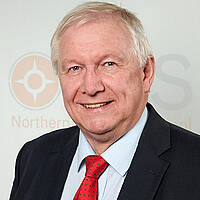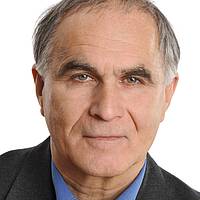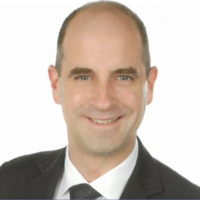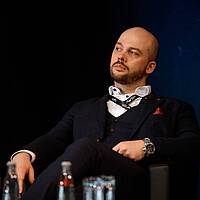Oliver-Andreas Leszczynski
Wirtschaftspolitischer Berater und KI-Stratege am INER
Kontakt: leszczynski[at]iner.nbs.de
Oliver-Andreas Leszczynski stands at the forefront of technological transformation in the maritime manufacturing industry as the Director of Artificial Intelligence & Data. His illustrious career is underscored by a profound commitment to advancing artificial intelligence applications within an industry that is as traditional as it is essential. With a scholarly background in Political Science, Business Management, and Applied Artificial Intelligence, Leszczynski possesses a unique blend of skills that allows him to adeptly navigate and integrate the complexities of economic theories and cutting-edge technologies.
Over the past 15 years, Leszczynski has distinguished himself in the fields of digitalization, automation, and strategic AI implementation within economic and industrial corporate environments. His innovative work is particularly noted for its substantial impact on optimizing industrial manufacturing processes and spearheading the digital transformation of companies, thereby opening new avenues for business through technological progress. His strategic acumen is evident in his ability to not just respond to technological trends but to anticipate and shape them, as seen in his instrumental role in modernizing and digitalizing manufacturing processes within the maritime industry.
Leszczynski's leadership style is profoundly influenced by the strategic importance he places on transatlantic partnerships, viewing them as vital catalysts for mutual growth and innovation. His philosophy is deeply rooted in the belief that the strength of these international bonds can drive a shared commitment to excellence and leadership in the global economy. This perspective is not merely theoretical but is actively practiced through his efforts to integrate AI solutions across borders, fostering collaboration that enhances both technological and economic outcomes.
A staunch advocate for the power of AI to revolutionize industries, Leszczynski’s work is also a reflection of his convictions as a committed transatlanticist. He passionately supports the strengthening of US-European partnerships, arguing that solidarity, close cooperation, and trust between these powers are essential for global prosperity and security. Leszczynski is a vocal proponent of neoliberalism, libertarianism, and proprietarianism, advocating for economic liberalism supported by strategic government investments in AI and digitalization, which he believes are crucial for securing a competitive edge in the global market.
Looking ahead, Leszczynski's vision is characterized by a robust transatlantic alliance in AI, aimed at establishing a commanding position with superior technologies. His goal is to see a comprehensive implementation of Industry 4.0 across the manufacturing industry, ensuring that technological advancements lead to real-world efficiency and productivity gains. Through his pioneering initiatives, the maritime industry is positioned not only at the cutting edge of industry innovation but also at the heart of international collaboration in technology and industrial strategy.
As a strategic advisor and research associate at the Institute of Northern-European Economic Research (INER), Oliver-Andreas Leszczynski continues to drive forward-thinking research and strategic guidance, underpinning the institute’s mission to advance economic knowledge and technological innovation. His contributions are vital in fostering an environment where AI and digitalization propel the maritime industry towards a future of sustained growth and global leadership. His extensive commitment to the international networking of classical liberal thought, especially European-American libertarianism, further emphasizes his dedication to creating a cohesive and progressive global economic landscape.







